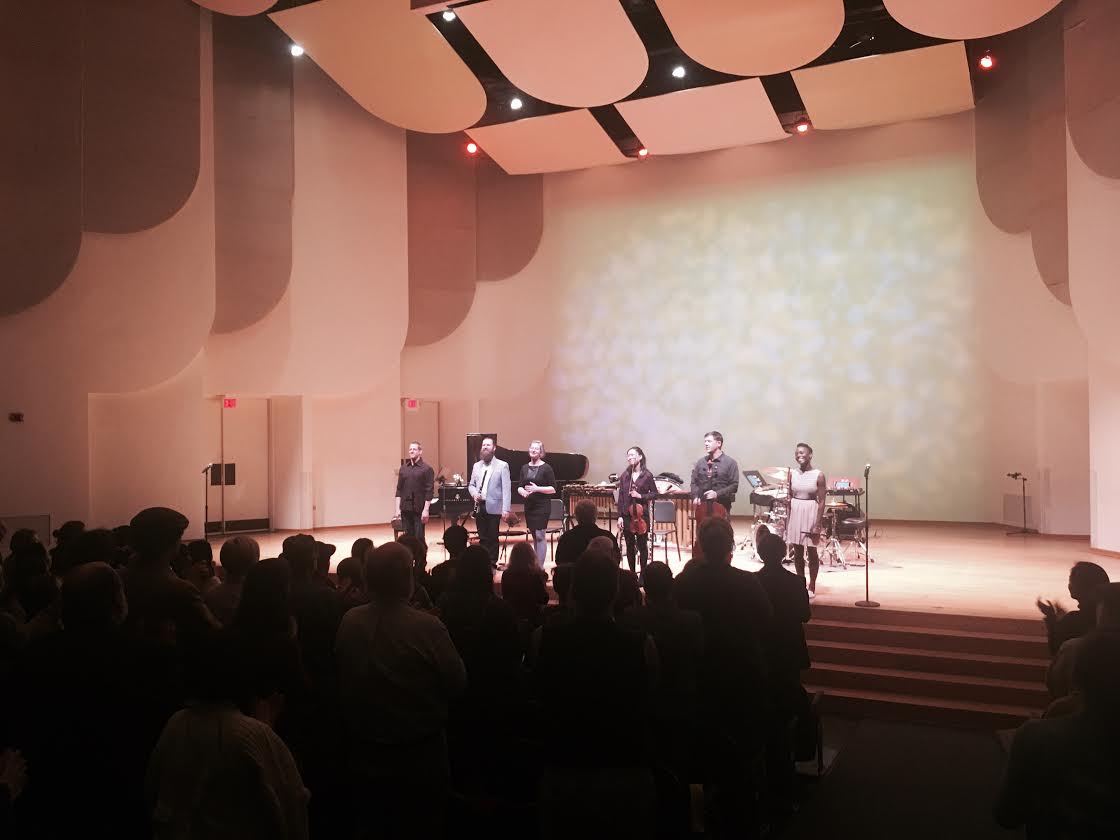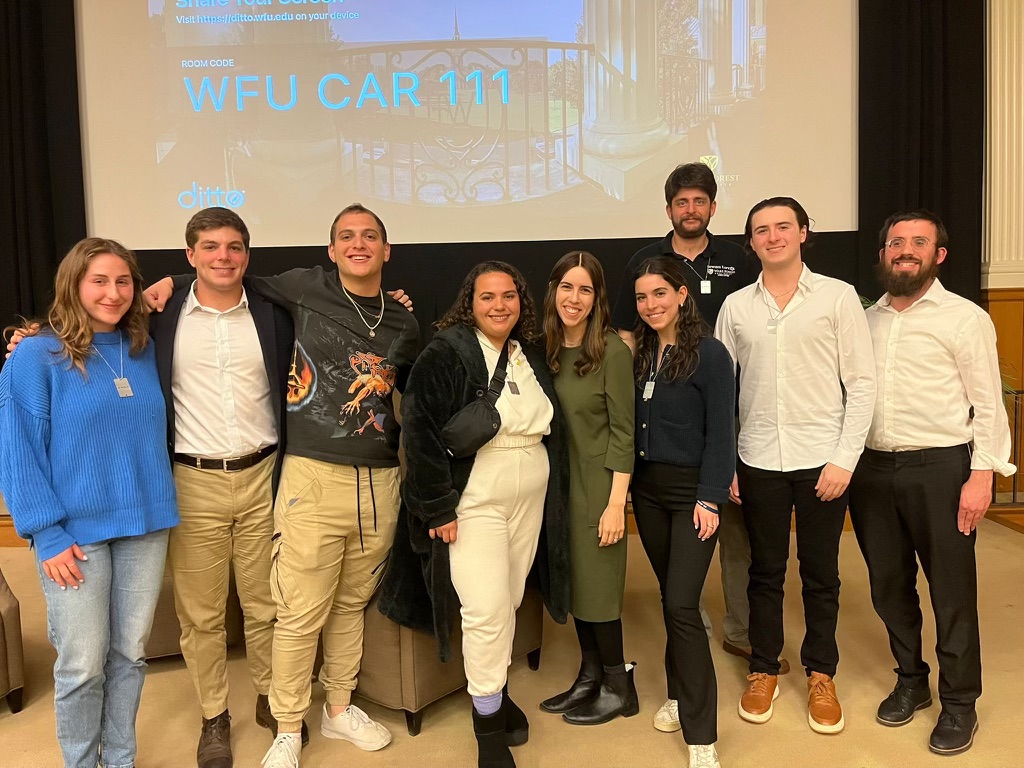The contemporary music sextet, Eighth Blackbird, recently introduced the Wake Forest community to classical music with a twist: reimagining the sound of the widely known genre from an innovative point of view through the eyes of a younger generation.
As a part of the ongoing Secrest Artist Series on campus, on Jan. 26 the group performed a selection of five pieces for an audience in Brendle.
The program, as well as the pre-show talk, given by Wake Forest professor of music Louis Goldstein, drew many students to experience the unique sound created by the award-winning group.
Goldstein considers Eighth Blackbird to be “new music” because of their focus on creating a distinctive variety of classical music as well as an emphasis on the entrepreneurial side of music and the projection of their image as an ensemble.
The ensemble — made up of Michael Maccaferri playing clarinet, Yvonne Lam playing violin and viola, Lisa Kaplan playing piano, Nathalie Joachim playing flutes, Matthew Duvall playing percussion and Nick Photinos playing cello — rose out of the collaboration of these six dual musicians and undergraduate students in 1996.
With seven acclaimed recordings and four Grammy Awards in their back pocket, the group has managed to commission and premiere hundreds of works by modern composers eager to work with them.
The inspiration for the name of the group stems from the eighth stanza of Wallace Stevens’s poem, “Thirteen Ways of Looking at a Blackbird:” “I know noble accents / And lucid, inescapable rhythms; / But I know, too, / That the blackbird is involved / In what I know.”
All of the unique pieces played during the concert followed a similar unwritten rule: they must embrace both the complexity of music and the ease in which a rhythm flows, including both sporadic, staccato notes and drawn-out phrases.
Embracing both diversity and simplicity, Eighth Blackbird puts forth the beauty of both individuality as well as unity as the conflicting notes from each instrument collide to create a uniquely pleasing sound.
Furthermore, their performance offers no distractions by any sort of additional entertainment to enhance performance quality. The group also proves its contemporary classification by using tablets instead of printed sheet music to read what notes come next in each song. During each piece, there is not much movement on stage, which allows the audience to focus only on the quality of the sound.
These key aspects of the ensemble stem from their core values, including “unquestioned quality, pervasive innovation, intense work ethic, genuine informality, [and] bold openness.”
Even for those who are not aspiring musicians, Eighth Blackbird hopes to influence these qualities and an appreciation for the classical and contemporary arts in all who listen to their performances and message.
This mission coincides with that of Scott Klein, the artistic director of the Secrest Artist Series.
Klein said that a variety of students will benefit from attending these performances.
“A music student may find that he or she is interested in some contemporary music they didn’t realize they were [interested in] before,” Klein said. “Or they might be inspired by the virtuosity of these young but really wonderful performers on their own instrument. People who might not have thought they were interested in classical music might find the kind of style, the show and the look of the performers, that brings them to a kind of performance they might not have ever tried to see.”
The last two performances during this 2016-2017 season of the Secrest Artist Series will be the Orchestra National de Lyon on Feb. 23, and Alina Ibragimova with Cedric Tiberghian on April 6.



















